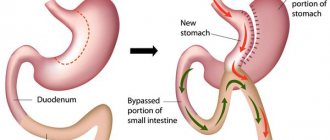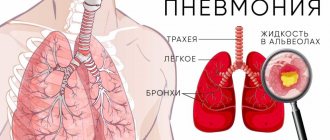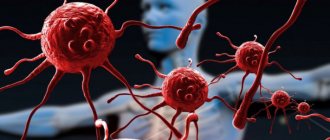Article verified by Euromed Kids doctors
There are many infectious diseases that affect the digestive system. Common symptoms of an intestinal infection:
- intoxication (fever, headache, weakness);
- stomach ache;
- nausea and vomiting;
- diarrhea.
In addition to these symptoms, some intestinal infections also have their own manifestations, for example, blood in the stool or a specific type of pain, which can be important for diagnosis.
Diagnosing intestinal infections is not always easy. We recommend contacting us to conduct a rapid test for intestinal infections to quickly and correctly select the method and place of treatment.
How does an intestinal infection occur?
Viruses, bacteria and protozoa that cause intestinal infections live in the stool, saliva, urine and vomit of patients. Then they can get into water, food, and various objects, and thus infect other people. Therefore, measures to prevent intestinal infections are to wash your hands, as well as fruits, vegetables and berries, maintain hygiene after using the toilet, do not drink from the same bottle with others, use only your own spoon and fork.
Do not consume unboiled milk; thoroughly boil or fry meat. An intestinal infection can be contracted by swimming in dirty water and in many other ways. Some intestinal infections, especially viral ones, are transmitted through household contact.
Prevention of intestinal flu
There is no vaccine for intestinal viruses. Therefore, the only way to avoid infection and prevent further spread of the infection is to follow the rules of hygiene:
- Always wash your hands after returning from the street, the toilet, or traveling on public transport.
- Wash all vegetables and fruits (even bananas and kiwis) before eating.
- Drink only boiled and bottled water, not raw (!).
If someone in the house is sick:
- Carry out wet cleaning daily. Wipe all surfaces and objects that a sick person comes into contact with (door handles, plumbing fixtures, especially the toilet seat, children's potty). Viruses are resistant to alcohol and ordinary detergents, so use disinfectant and chlorine-containing household chemicals.
- Dishes, bed linen, and hand towels must be individual.
- Wash all clothes that may have traces of vomit or feces on them immediately at a temperature of at least 60°.
Be healthy!
What organs are affected by intestinal infections?
Intestinal infections can be classified according to the organ that has been “attacked” by microbes:
- gastritis - inflammation of the gastric mucosa. It manifests itself as pain in the abdomen above the navel, constant nausea, and repeated vomiting. Diarrhea is not typical, but there may be loose stools 1-4 times. Acute infectious gastritis usually develops when infected with Staphylococcus aureus (food poisoning) or viruses.
- gastroenteritis - inflammation of the mucous membrane of the stomach and small intestine. It manifests itself as pain in the abdomen around the navel, vomiting, frequent stools, first mushy, then watery, with undigested food debris. Usually develops with viral intestinal infections or damage by pathogenic strains of Escherichia coli.
- enteritis - inflammation of the mucous membrane of the small intestine. It manifests itself as frequent watery stools without nausea, vomiting and abdominal pain. Enteritis can develop, for example, with cholera (but also in other cases).
- gastroenterocolitis - inflammation of the mucous membrane of the stomach, large and small intestines. It manifests itself as abdominal pain, pain during bowel movements, frequent loose stools, sometimes with blood and mucus. Characteristic for salmonellosis.
- enterocolitis - inflammation of the intestinal mucosa (small and large). It manifests itself as severe abdominal pain, frequent urge to have bowel movements, loose stools (sometimes in the end only mucus is released). Characteristic of salmonellosis and dysentery.
- colitis - inflammation of the large intestine. It manifests itself as pain in the lower abdomen, diarrhea, sometimes with blood and mucus. Characteristic of dysentery.
Pathogens of diseases and routes of their transmission
The causative agents of pathologies in this group can be both microbes and infectious agents of a non-cellular nature - viruses. The toxins they produce cause poisoning of the body.
Bacterial pathogens of intestinal infections:
- E. coli and other Escherichia;
- salmonella;
- Vibrio cholerae;
- halophilic vibrio;
- staphylococci.
Please note: The most commonly diagnosed bacterial intestinal infections include pathologies caused by staphylococcus and salmonellosis. Such a dangerous disease as botulism is classified as another group of pathologies - foodborne toxic infections.
Virus pathogens:
- rotavirus;
- enterovirus;
- adenovirus.
Important: antibiotics are ineffective for viral intestinal infections. Drugs in this group help destroy only bacterial microflora.
Lesions of the gastrointestinal tract are often caused by fungal microflora, as well as protozoa - Giardia and dysenteric amoeba.
The main source of infection is sick people and carriers who do not have pronounced clinical manifestations. Infectious agents are excreted primarily in feces, but can enter the environment through saliva or vomit. Viruses can often be transmitted through airborne droplets.
Most diseases in this group are characterized by a fairly high contagiousness. A person is a source of infection from the moment the first clinical signs of pathology appear until the complete disappearance of clinical symptoms (recovery). Infection occurs when eating poorly washed food or food that has undergone insufficient heat treatment. The pathogen can be transmitted through common objects.
Please note: infection often occurs when ingesting contaminated water while swimming in open water.
Viral intestinal infections
Rotavirus infection
Children most often suffer from rotavirus infection. As a rule, adults have developed immunity, because almost everyone suffered from rotavirus in childhood.
Symptoms of rotavirus:
- temperature rise to 38-39;
- cramping abdominal pain;
- weakness, loss of appetite;
- repeated vomiting;
- diarrhea up to 10-15 times a day, stools are liquid, foamy, brown-yellow, after 1-2 days - clayey, yellowish-gray;
- sometimes - sore throat, runny nose, conjunctivitis.
There is a Rotatek vaccine against rotavirus. While it is not included in the Russian calendar, it can be done for a fee. We advise you to vaccinate your child, as rotavirus can be very dangerous for children under two years of age, quickly causing dehydration and causing serious complications.
Adenovirus infection
Adenoviral enteritis is commonly called “intestinal flu.” This virus affects the small intestine, stomach, large intestine - all at once. Children get sick more often, but adults too. In addition to the usual route of transmission of intestinal infections, adenovirus can be contracted through airborne droplets through contact with a patient.
Symptoms of adenoviral enteritis:
- abdominal pain;
- moderate nausea and vomiting;
- loose stools several times a day, often with a greenish tint;
- rumbling in the stomach;
- temperature rise to 38 and above (can persist for 3-5 days);
- pallor, dry tongue.
Adenovirus in young children and the elderly is fraught with complications, especially dehydration.
Enterovirus infection (Coxsackie viruses A and B, ECHO viruses)
Enteroviruses are a common name for more than 100 types of viruses that reproduce in the gastrointestinal tract. Almost all of them are pathogenic and dangerous because they can live outside the body for a long time and are extremely difficult to destroy. Thus, enteroviruses can live in moist soil and enter the body through poorly washed vegetables; even in chlorinated water, enteroviruses remain viable for 3-4 months. It is not surprising that enteroviral intestinal infections are very common. Children endure them more severely than adults.
Most often, enterovirus infections begin acutely, with an increase in temperature, which can then either rise or normalize. Diarrhea, nausea, vomiting, weakness, lack of appetite and headache also occur. At the same time, symptoms characteristic of ARVI may appear - itching and sore throat, runny nose and cough.
Enterovirus infection can cause relapses: symptoms subside and then develop with renewed vigor.
Acute intestinal infections in children: prevention, medications and treatment
Summer is a time for vacations, relaxation and travel. During this period, we usually think about pleasant things: a trip to the sea, sunbathing on the beach, exciting trips and, of course, the opportunity to simply get a good night's sleep. However, we should not forget that in summer the risk of diseases, especially infectious ones, increases.
When is the risk of infection highest?
Infections await us always and everywhere, but the incidence of acute intestinal infections increases precisely in the warm season.
This is a group of diseases characterized mainly by damage to the gastrointestinal tract. Currently, about 30 of them are known, and in their prevalence they are second only to acute respiratory infections. The causative agents can be bacteria (salmonella, shigella, enteropathogenic E. coli, staphylococci) and their toxins (foodborne diseases), as well as viruses (enteroviruses, rotaviruses, astroviruses, parvoviruses) and protozoa (giardia, amoebas). In the summer, the spread of intestinal diseases is favored by high temperatures, which reduce the shelf life of products and promote the survival of pathogens in the environment; flies and other insects that can become carriers of infection; “crowding” of people - do not forget that the source of infection can be a sick or infected person without signs of illness, but who is a bacteria excretor. The main cause of acute intestinal diseases remains non-compliance with hygiene rules. That is why children are at greatest risk of infection.
Symptoms of intestinal infection in a child
Pathogens enter the human body through the mouth. Basically, all intestinal diseases occur with fairly similar symptoms and always begin suddenly. At the very beginning, you may be worried about weakness, lethargy, loss of appetite, headache, fever - these symptoms are similar to those of acute respiratory infections. Soon nausea, abdominal pain, vomiting, and loose stools appear. Among the symptoms of damage to the gastrointestinal tract, as a rule, the most pronounced symptoms are those associated with the affected organ:
- nausea, vomiting, pain in the upper abdomen - with gastritis;
- loose stools, stools with mucus, blood - with enteritis, colitis;
- vomiting and loose stools - with gastroenteritis.
Children have a number of features that contribute to the more frequent occurrence and more severe course of intestinal infections, for example: low levels of acidity of gastric juice and enzymes allow pathogens to easily pass this barrier and cause damage to the entire gastrointestinal tract; good blood supply to the intestinal mucosa and increased permeability of all barrier systems allow toxins to quickly penetrate into the blood, which leads to rapid disturbances in the regulatory systems of the whole body, disorders of the central nervous system and psyche - children become lethargic, capricious or, on the contrary, excited, as well as They may experience delirium (delirium). All these and some other features sometimes make it difficult to diagnose the disease in a timely manner.
In general, it should be said that the younger the child’s age, the higher the risk of severe disease and the greater the likelihood of complications. With the initial signs of the disease, it is difficult to assess the severity and predict the outcome. This requires dynamic observation with assessment of all symptoms of the disease. Children may “hide” their complaints out of fear and simply not differentiate pain. Therefore, if the child’s condition worsens, it is recommended to immediately consult a doctor.
Medicines for intestinal infections in children
You can alleviate the condition of a sick child, promote his rapid recovery, and also prevent the onset of the disease by doing the following before the doctor arrives:
- For heaviness in the abdomen, overeating, fatty foods, give enzymes (Creon, Mezim-Forte, Pancreatin, etc.). These medications are taken with meals or can be added to food.
- In case of vomiting, nausea, loose stools, and even if poisoning is suspected, sorbents should be given as quickly as possible - these are drugs that capture toxins, preventing them from entering the blood, and remove them from the body with feces (Smecta, Enterosgel, Filtrum, Polysorb, etc. .d.). Some of them have enveloping properties and protect the mucous membrane of the stomach and intestines (Smecta). Their disadvantage is an unpleasant taste, which is a problem when treating a child. However, some of them (Smecta) can be added to porridge or mixture. Taken at intervals of 1.5-2 hours before or after taking other medications.
- Probiotics that normalize intestinal microflora are an effective preventive agent that promotes faster restoration of intestinal microflora (Acipol, Enterol, Baktisubtil, RioFlora Immuno, etc.). At the first symptoms of the disease, they should be given 2 hours after taking the sorbent.
- If a disease occurs, accompanied by vomiting, loose stools, or fever, drinking water is mandatory. This requires a certain degree of persistence and patience on the part of the parents. The procedure should be carried out in small volumes, so as not to provoke vomiting, 5, 10, 15 ml at intervals of 10-15 minutes, until vomiting stops and stool decreases. For drinking, drinking water, weak tea, dried fruit infusion, rice infusion, and apple-raisin infusion are used. These solutions do not cause stomach irritation, contain the necessary salts and are easily absorbed.
In case of repeated vomiting and frequent stools, it is necessary to additionally supplement the child with saline solutions (Regidron, Gidrovit, etc.), because the loss of salts and water leads to significant disruptions in the functioning of organs and systems. Solutions are given fractionally, alternating with drinking, in the same volume, and if the doctor does not indicate the volume of saline solution, then drinking should be done with saline solution and drinking in a ratio of 1:3. Saline solutions should be given at room temperature to avoid causing vomiting. If mineral water is used, it must first be degassed.
Other drugs, such as antiemetics (Motilium, etc.), intestinal antiseptics (Enterofuril, etc.), etc. should be given only after consultation with a doctor, who will select the required dose. In addition, taking antiemetic drugs in the first hours of the disease is undesirable, since vomiting causes spontaneous rapid removal of the contaminated product, which will contribute to a quick recovery. Antidiarrheal drugs, such as Loperamide, are also not recommended to be given without a doctor's prescription.
Nutrition is a very important part in treating a patient with an intestinal infection. A proper diet reduces the load on the inflamed mucous membrane and organs of the gastrointestinal tract (specially selected foods are better absorbed) and contributes to the rapid recovery of the child’s body. During the acute period, the following food is recommended: slimy (boiled) porridge in water (rice, buckwheat), mashed potatoes, vegetable soups, crackers, baked apples, lean meats (turkey, beef) in crushed form (soufflé, minced meat, puree) and etc.
With the therapy, the child's condition can quickly improve. However, with symptoms such as repeated vomiting, abdominal pain, vomiting with various impurities, including blood, or “rusty” vomit (it is advisable to collect it for examination by a doctor), black or bloody stools, rare urination in small portions, You should consult a doctor immediately.
Prevention of intestinal infections in children
Considering the risk of intestinal disorders, it is recommended to take all of the above medications with you in your travel first aid kit, and also remember basic hygiene rules:
- wash your hands with hot water and soap;
- store food correctly;
- drink purified, or preferably boiled, water;
- wash all fruits, berries and vegetables eaten raw with hot water;
- do not buy products with damaged packaging or from dubious sellers;
- avoid contact with sick people (if your child is sick, try to limit contact with other people, stop visiting swimming pools and the sea, observe hygiene more carefully, because you can also be a source of infection, so do not allow the infection to spread);
- do not allow children under 3 years of age to swim in the sea (it is better to take them to the pool);
- use disinfectant wipes and gels after washing your hands (this prevents infection for a longer period).
Bacterial intestinal infections
Botulism
Botulism is a rare but dangerous intestinal infection, as it affects the nervous system, leads to extremely serious consequences and is difficult to diagnose. Botulism can be contracted from eating home-canned food (no outbreaks associated with factory-made canned food have been reported in recent decades), or less commonly through contact with someone who is sick (usually infants).
Botulism begins with short-term nausea and vomiting, then a feeling of fullness in the abdomen occurs - a consequence of paresis (partial paralysis) of the intestines and stomach. Then muscle weakness, dry mouth, and visual disturbances (fog before the eyes) appear. By the end of the first day of illness, respiratory failure may develop. Mortality without treatment is 30-60%. With a timely diagnosis (this can be difficult due to the fact that this infection is rare, and the manifestations are easily confused with many other diseases), the victims are given an toxoid, and, as a rule, a gradual recovery occurs within 2-3 weeks.
Dysentery (shigellosis)
Dysentery is a common disease caused by Shigella bacteria. Amoebic dysentery, caused by protozoa, also occurs. People of all ages are susceptible to dysentery, but 60% of patients are children under 4 years of age.
Dysentery begins acutely with abdominal pain and stool upset (10-20 times a day). By the end of the first day, “spit-shaped stool” consisting of pus, mucus and blood is characteristic. On days 2-3, the manifestations of dysentery are maximum. The temperature can reach 39, and in severe forms, rise even higher. The patient is pale, the tongue is covered with a brown coating. A characteristic sign of dysentery is sharp pain when palpating the left iliac region. With severe dysentery, serious complications can develop, including peritonitis. Dysentery is extremely dangerous for young children and must be treated in a hospital. The temperature in moderate forms of dysentery usually decreases on the 4-5th day of illness, but complete recovery occurs only after 2-3 weeks.
Bacterial intestinal infections also include salmonellosis, staphylococcal food poisoning and cholera. It is extremely important to distinguish dysentery from food poisoning, and if treatment is necessary, to make it easier for the doctor to quickly and correctly choose an antibiotic.
In our clinic you can undergo express diagnostics in just 1 hour to identify 4 viruses that most often cause intestinal infections! Click to find out more.
How can you tell if dehydration is developing?
Intestinal infections lead to the body losing water and salts (sodium, potassium, chlorine, etc.) due to vomiting and diarrhea. Dehydration is one of the main dangers of an intestinal infection, as it can very quickly lead to death, especially in young children. A parent should be wary if he sees the following signs:
- dry mucous membranes of the mouth and tongue;
- grayish skin;
- saliva viscosity increased;
- the child is lethargic, sleepy;
- the baby’s fontanelle on the head sinks, the pulse quickens;
- the baby peed twice or less in 12 hours, the amount of urine is small, it may be dark, with a strong odor;
- intense vomiting, the child cannot be given anything to drink. In this case, you should go to the hospital, where the child will be given a drip and the fluid balance in the body will be restored.
Treatment options
As soon as the first symptoms of the disease appear, you should eat as little food as possible and drink plenty of fluids to prevent dehydration. It is better to drink regular non-carbonated mineral water, compotes, and unsweetened tea. The liquid should not be cold or very hot.
Rehydration products
Helps with frequent vomiting and diarrhea. It is worth giving preference to pharmaceutical drugs.
Enterofuril has proven itself well, capable of fighting any intestinal infections.
Antibiotics
Prescribed to treat many bacterial infections. They can only be used for medical purposes. This or that drug is able to fight a specific type of bacteria. It is important to correctly identify the causative agent of infection. Proper use of antibiotics will allow you to experience a noticeable improvement within a day after starting treatment. They should be taken throughout the entire treatment course, the duration of which is determined by the doctor.
If treatment is interrupted, the remaining microorganisms will become resistant to antibiotics and become insensitive to their action. As a result, over time the disease will manifest itself with even greater force and it will be more difficult to overcome it. Effective agents include: Levomycetin, Ampicillin, Rifaximin.
Antiprotozoal agents
Effective against protozoal infectious lesions. Like antibiotics, they can only be prescribed by a doctor; you should never self-medicate, otherwise there is a risk of worsening the condition. First you need to do an examination. The results of the analysis will allow you to establish an accurate diagnosis and select appropriate medications. Usually prescribed: Ornidazole, Clarithromycin, Spiramycin.
How to feed a child with an intestinal infection?
If you are being treated at home and your child is vomiting and has diarrhea, the most important thing is to give your child the right amount of water. Often, if a sick child drinks several sips at once, this can trigger vomiting and he will lose even more fluid. Therefore , it is recommended to feed the child every 5-10 minutes, giving him 5-15 ml of liquid at a time. You should not give your child only clean water, as this can lead to a salt imbalance.
You can give your child a pharmaceutical rehydrate solution (for example, Regidron) or prepare such a solution yourself. However, if the child does not drink at all, the choice should be made in favor of any liquid that he agrees to swallow.
How to treat and not pass on an intestinal infection to others?
Treatment depends on the pathogen and severity of the disease. For example, dysentery or norovirus can be treated at home. But only a specialist can help with salmonellosis. In any case, to make a decision on treatment, you must call a doctor and undergo laboratory tests.
Here's what you can do to get started:
- Restore water-salt balance. It is better to drink boiled or bottled water with the addition of special solutions for rehydration
- Take enterosorbents to relieve intoxication of the body, as well as painkillers and antipyretics
- Eliminate fried, salty, spicy, raw foods from your diet
- If you want to eat, it is better to give preference to simple food: soup, rice, bread
- Rest more
How to avoid infecting others if you or your loved ones are sick?
- Wash your hands thoroughly
- Regularly disinfect common areas and the patient's room: especially the toilet, bathroom, kitchen
- Provide separate dishes and towels for the sick person
- Change bedding and clothing regularly and wash them at high temperature (60°C)
- Limit your social circle, isolate the sick person
It is recommended to visit public places no earlier than two days after the symptoms have completely disappeared, and places such as a swimming pool are better after two weeks.








